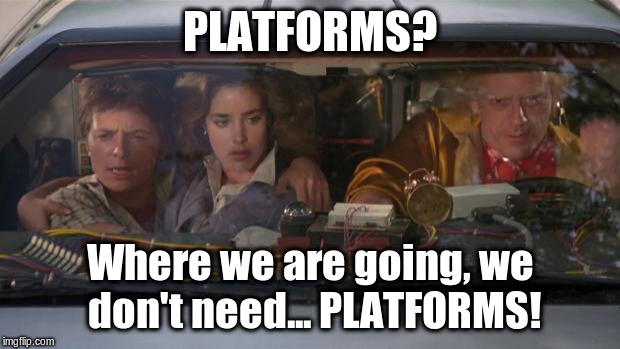The EU copyright directive is a mess that may do a lot of good
The “copyright directive” that will be voted tomorrow in the EU parliament is so (words fail me here) to be, as they say, “not even wrong”. But if it is approved, it may have a wonderful, long overdue unintended consequence.
FULL DISCLOSURE: I am the author of the proposal mentioned below. If somebody, following this post, decided to pay me to work on it, I’d obviously be quite happy. But one advantage of my proposal is that everybody could do it, even without my participation.
The list at the end of this post links to several articles that explain what this copyright directive is, and in which ways it really seems “not even wrong”. Maybe I too will write another, longer post of the same type. Right now, I only want to highlight one specific critic to this directive, and why I think its approval may end up doing REAL GOOD.
Quoting from Julia Reda’s explanation of the Copyright Directive (emphasis mine):
- “This law means that platforms will need to stop us from sharing links (with snippets) that they have not negotiated a license for.”
- “While the EU Commission wanted everyone to pay for snippets, including individuals, the Legal Affairs Committee wants to limit this to internet platforms.”
- “But of course, such platforms are what individuals use to share news articles today. Hardly anyone runs their own blog: Our profiles on commercial sites are, for better or worse, where we express ourselves.
Why this may be a good thing
If the mess that is called “copyright directive” is approved, it may be just what is needed to force us all back to the future, at last. It may trigger and accelerate the realization of something we should do anyway:

Because in the future, hardly anyone does NOT run their own blog
</em></u>
abandon “platforms”, and leave the era in which “hardly anyone runs their own blog” behind us.
How? My own proposal is what I call percloud, but it only is one of many. Here are some slides and short posts to better understand why I argue that “platforms” should be abandoned anyway, and that the percloud (whoever implements it) is a great way to do it:
- Personal Clouds to replace corporate-controlled-platforms (slides)
- We have reached “peak data governance”
- NO, It’s NOT “Time for Mark Zuckerberg to Give Up Control of Facebook”
- Converting facebook into a global coop? WHY?
- WITHOUT personal clouds you may not do anything else right
Suggested reading on the EU Copyright Directive
Who writes this, why, and how to help
I am Marco Fioretti, tech writer and aspiring polymath doing human-digital research and popularization.
I do it because YOUR civil rights and the quality of YOUR life depend every year more on how software is used AROUND you.
To this end, I have already shared more than a million words on this blog, without any paywall or user tracking, and am sharing the next million through a newsletter, also without any paywall.
The more direct support I get, the more I can continue to inform for free parents, teachers, decision makers, and everybody else who should know more stuff like this. You can support me with paid subscriptions to my newsletter, donations via PayPal (mfioretti@nexaima.net) or LiberaPay, or in any of the other ways listed here.THANKS for your support!